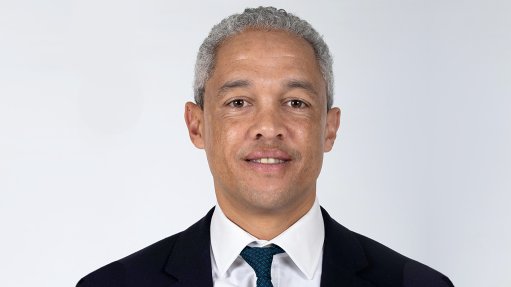Team South Africa?
Do the names Elaine Thompson-Herah,Shelly-Ann Fraser-Pryce and Shericka Jackson mean anything to you? No? What about 10.61, 10.74 and 10.76? These are the times recorded by the top three women athletes in the 100 m sprint final at the Tokyo Olympics on July 31.
Quite remarkably, all three ladies are from the small island nation of Jamaica, the home country of Robert Nesta Marley. I was tempted to write about the Olympics, but then realised it would be quite a challenge for a trade column.
The Olympics tend to serve as a display cabinet for a country’s ability to produce superior athletes. Just how impressive the performances are, of course, depends on the type of sport. But what exactly qualifies as a sport? It seems that nowadays every pastime, with the possible exception of sleeping, qualifies as a sport. The Cambridge Dictionary defines sport as “a game, competition, or activity needing physical effort and skill that is played or done according to rules, for enjoyment and/or as a job”. But I regress.
As the Jamaican ladies celebrated their win, a television commentator observed that the ladies were celebrating as a team – in his words, “Team Jamaica had just won.”
This observation made me ponder whether Team Jamaica had indeed just won. Yes, they are all Jamaicans, but were theirs not individual endeavours? Could it be that we have become so fixated with the Olympics that we think of a triumph by an individual athlete as his or her country’s triumph? This despite the fact that the Olympics are largely about individual endeavour and success.
At the time of writing, the 4 × 100 m athletics sprint relay was a few days away – it was scheduled for August 6. A Jamaican triumph, I thought, would result in a different type of celebration, considering that each member of the winning relay team is awarded a gold medal. This would indeed be a team celebration.
All this, inevitably, led me to think about Team South Africa. No, not in the context of sport, but from an economic perspective. Far too often, one hears or sees references to Team South Africa. But is there such a thing? Would it withstand the acid test – the test of whether the Team South Africa reference is to an individual’s endeavours and success, and subsequent individual celebration, or whether it is to a collective venture that results in a collective celebration?
The reference to ‘team’ is reminiscent of the description of a successful businessperson as a ‘self-made millionaire’. George Matthew Adams reminds us: “There is no such thing as a ‘self-made man’. We are made up of thousands of others.” This is echoed by George Shinn, who states: “There is no such thing as a self-made man. You will reach your goals only with the help of others.” One of the richest men in the world, Warren Buffett, famously said, “I personally think that society is responsible for a very significant percentage of what I’ve earned.”
This begs the question: Why do South African businesspeople not act as a collective on the international business stage? This led me to an April 9, 2018, article by Plecto, titled ‘Collective Leadership in Business’, which states: “Collective leadership is not a business term at heart. “It is a political or social term used to describe an ‘ideal society’, one where leadership is shared, and all members work together to achieve a common goal, with effort spread equally. In business, collective leadership could be described as having multiple leaders, who are all responsible for making decisions and managing the business. “It means more responsibility and accountability for all leaders involved, and also a better organisational structure and culture, where more opinions are heard, and everyone has a voice.”
Which Team South Africa are you supporting?
Article Enquiry
Email Article
Save Article
Feedback
To advertise email advertising@creamermedia.co.za or click here
Announcements
What's On
Subscribe to improve your user experience...
Option 1 (equivalent of R125 a month):
Receive a weekly copy of Creamer Media's Engineering News & Mining Weekly magazine
(print copy for those in South Africa and e-magazine for those outside of South Africa)
Receive daily email newsletters
Access to full search results
Access archive of magazine back copies
Access to Projects in Progress
Access to ONE Research Report of your choice in PDF format
Option 2 (equivalent of R375 a month):
All benefits from Option 1
PLUS
Access to Creamer Media's Research Channel Africa for ALL Research Reports, in PDF format, on various industrial and mining sectors
including Electricity; Water; Energy Transition; Hydrogen; Roads, Rail and Ports; Coal; Gold; Platinum; Battery Metals; etc.
Already a subscriber?
Forgotten your password?
Receive weekly copy of Creamer Media's Engineering News & Mining Weekly magazine (print copy for those in South Africa and e-magazine for those outside of South Africa)
➕
Recieve daily email newsletters
➕
Access to full search results
➕
Access archive of magazine back copies
➕
Access to Projects in Progress
➕
Access to ONE Research Report of your choice in PDF format
RESEARCH CHANNEL AFRICA
R4500 (equivalent of R375 a month)
SUBSCRIBEAll benefits from Option 1
➕
Access to Creamer Media's Research Channel Africa for ALL Research Reports on various industrial and mining sectors, in PDF format, including on:
Electricity
➕
Water
➕
Energy Transition
➕
Hydrogen
➕
Roads, Rail and Ports
➕
Coal
➕
Gold
➕
Platinum
➕
Battery Metals
➕
etc.
Receive all benefits from Option 1 or Option 2 delivered to numerous people at your company
➕
Multiple User names and Passwords for simultaneous log-ins
➕
Intranet integration access to all in your organisation

















